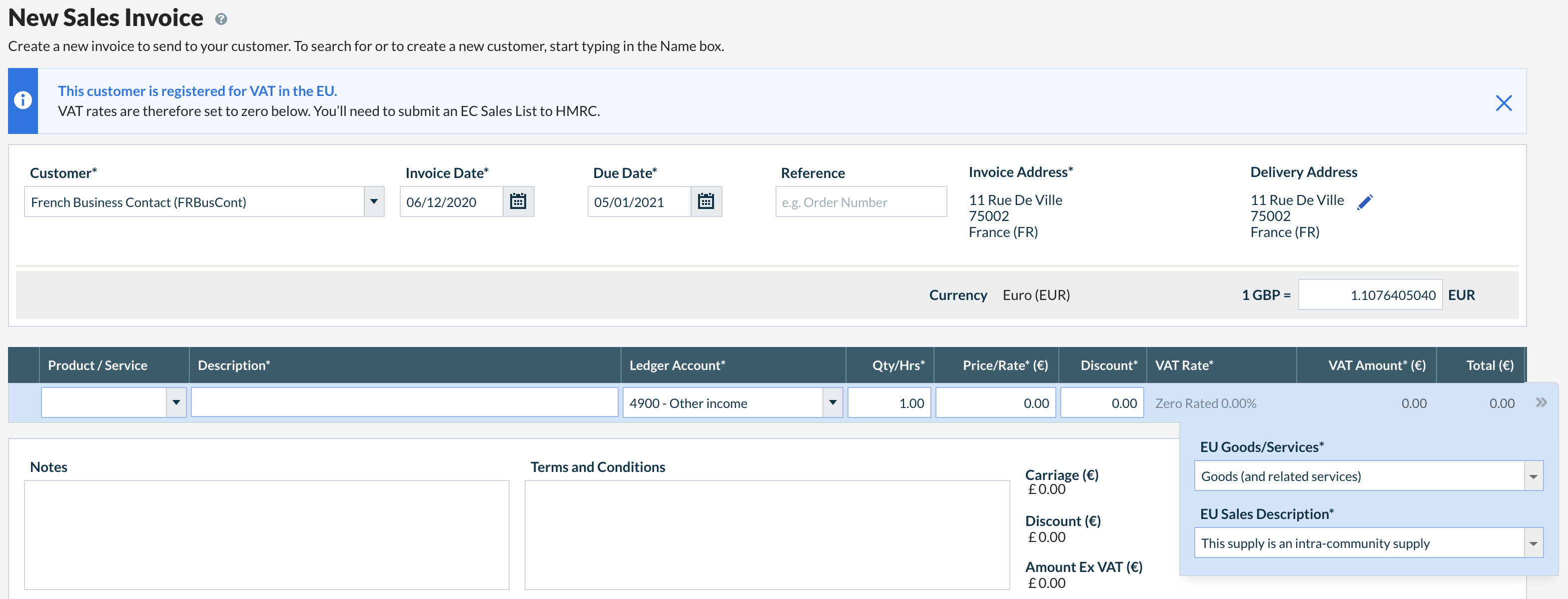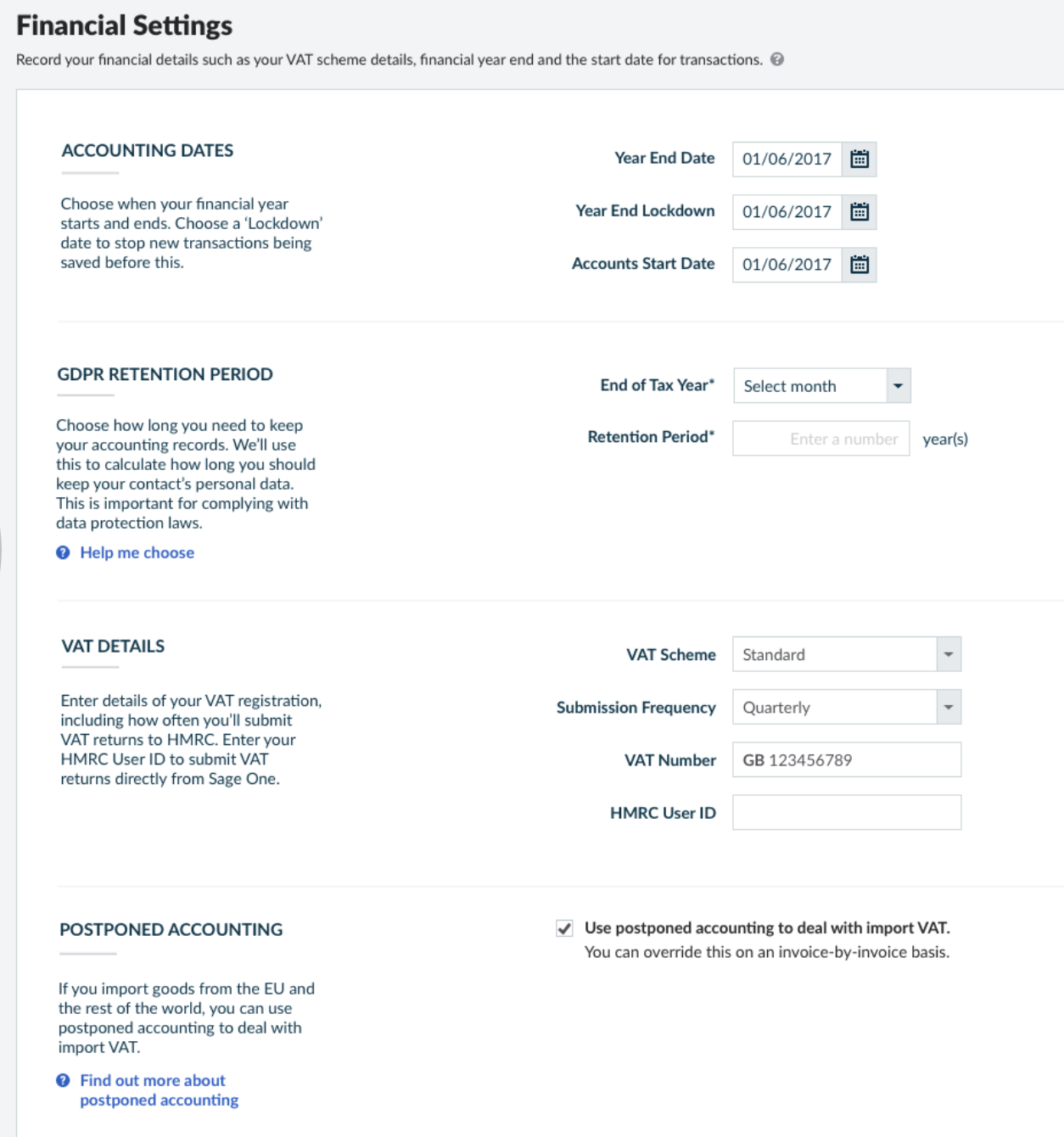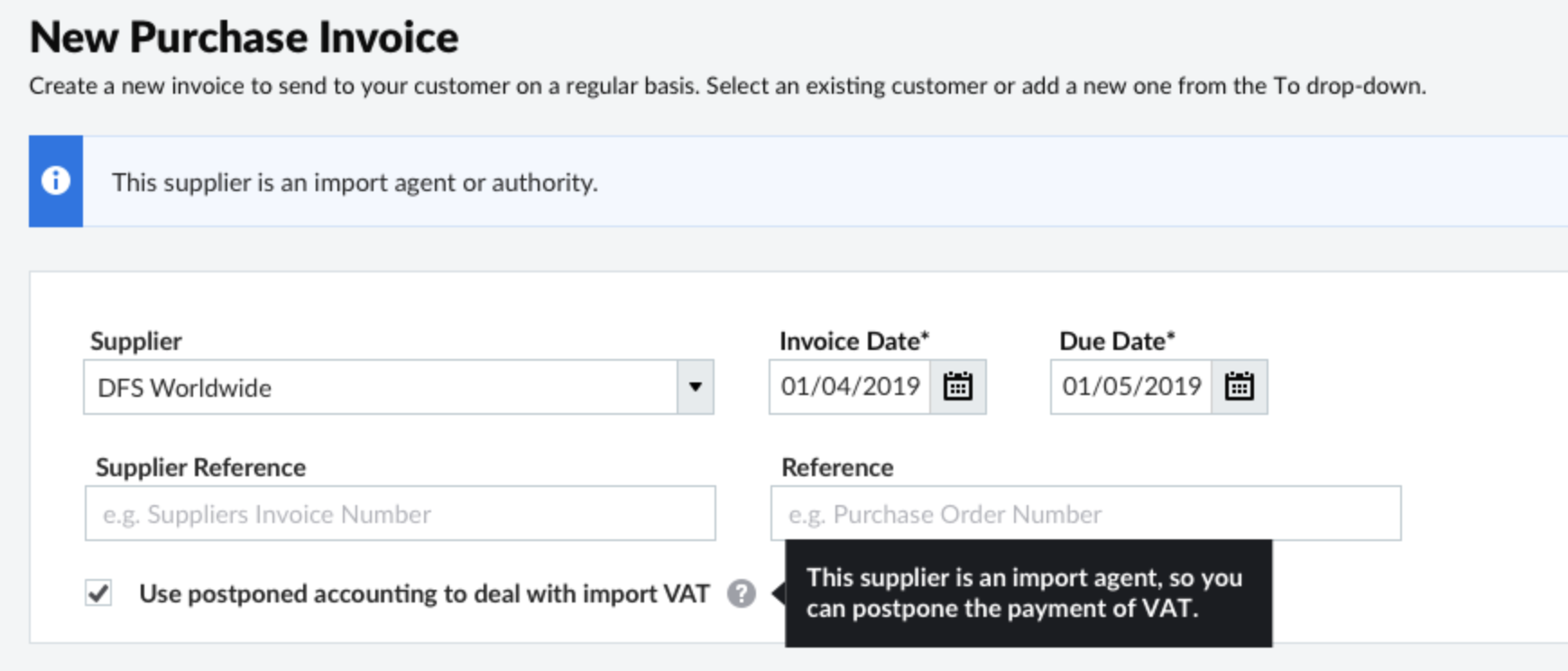Integration Changes Required for Brexit
Less than to read
This document has been written as additional support to the information provided in our Brexit and the Accounting API guide.
Brexit
On the 1st of January 2021 the UK will complete its withdrawal from the European Union. The UK’s withdrawal agreement means that trade between European customers and suppliers will require new customs declarations when moving goods and services between the UK and EU member states.
Under the terms of the Withdrawal Agreement, Northern Ireland remain fully aligned with the EU’s VAT rules on goods. The UK government, will be responsible for implementing these rules in Northern Ireland and the revenue raised will be retained by the Uk treasury. This differs to the current agreement whereby the UK pass on the revenue to the EU.
Political uncertainty remains around a trade deal being reached with the EU, and the potential of an extension to negotiations remains. With this in mind, consideration needs to be given around the implementation of the required changes.
Where possible, changes to integrations should be implemented to allow for the enabling, disabling and rollback scenarios that may occur in the event of any change leading up to the end of the transition period.
Application changes required
To ensure your applications and integrations provide customers with the ability to account for the new rules of trade, we’ve added a few new attributes to our API’s endpoints. The attributes provide additional guidance for the tax treatment of transactions between EU member states and the UK including Northern Ireland.
To allow easier recognition of businesses and contacts located in Northern Ireland, a ni_based attribute has been added to both the contacts and businesses endpoint. This will allow businesses located in the EU, NI and GB to differentiate between Northern Ireland and GB businesses to ensure the required transaction details are obtained to correctly align the transaction’s VAT treatment. The attribute is returned as true if a Northern Ireland postcode(BT) is held in the main contact address or the business address.
Blocked transactions
Due to the differing VAT treatments of goods and services, SBC Accounting now requires greater detail for non domestic trade. This means the API will in most cases allow only sales artefacts(sales_invoices & sales_credits) and purchase artefacts(purchase_invoices & purchase_credits) to be issued between NI and EU trade. This means quick_entries, other_payments/other_receipts and vendor_refunds will be blocked by the API. For in-depth detail of the trade scenarios the transactions are blocked for, please select the individual links above.
If your app or integration creates or edits the above transaction types, you will need to ensure users are unable to post them from your application or, ensure the error response is handled in such a way that the user is guided to create a corresponding sales or purchase artefact.
Goods/Service Indicator
For VAT purposes, further definition of the artefact item lines is also required in the form of a goods/service indicator and in some instances, an eu_sales_description_id. The indicator ensures the VAT appears in the correct boxes for the VAT return.
Your application will now need to allow for the selection of a goods/service indicator in the scenarios listed here.

Mixed Sales Artefacts Not supported
Under the below circumstances, invoices, quotes, estimates, credit notes and Spanish corrective invoices cannot contain a mixture of goods and services item lines. Where possible your application should inform the user that it is not possible to post a mix of goods and service items for the following scenarios:
• GB VAT Registered business selling to an EU non VAT registered business
• EU VAT Registered business selling to a GB non VAT registered business
Postponed Accounting/Import VAT
At present VAT registered UK businesses receiving Purchase Invoice’s from Foreign ROW Suppliers contain a locked Zero VAT rate for Goods where Service VAT rates are free to select based on the type of service provided and the destination of the service. This in turn is used to calculate the amount of reverse charge VAT applicable to the service.
Post Brexit, the VAT rate applied to goods will also be a selectable VAT rate for UK VAT registered businesses and used to calculate Reverse Charge VAT. From 1 January 2021, UK VAT-registered businesses may need to account for import VAT on Purchases. A new postponed_accounting boolean has been exposed in the API’s financial_settings endpoint to determine if a business is registered for import VAT. If they are, your application will need to allow for the following scenarios:
• GB - purchase invoice from suppliers outside UK (this excludes suppliers in NI) the VAT rate selection will be enabled for both Goods and Services, VAT values are calculated as 0.00
• NI - purchase invoice from suppliers outside UK & EU (Rest of World) the VAT rate selection will be enabled for both Goods and Services, VAT values are calculated as 0.00

Contacts flagged as Import Agents
Post Brexit, UK(includes Northern Ireland) and Republic of Ireland businesses purchasing goods from a contact flagged as an Import Agent may require the ability to postpone VAT on Purchase Invoices and credits from the contact. In the event of an Import Agent flagged contact being selected for a purchase artefact, your application will need to provide the user with the ability of setting the postponed_accounting attribute on the purchase artefact. It is recommended that the default setting for postponed_accounting is used to determine the default value of the artefact’s postponed_accounting attribute.

VAT exempt Consignment under £135
Post Brexit, purchase_consignment values of under £135 will have a new vat_exempt_consignment flag for GB businesses, to indicate when the consignment’s value is under £135 and a per transaction agreement has been reached with the supplier for the business to account for the VAT element as reverse charge VAT on the Vat return. To ensure your application has the ability to support this functionality, you will need to add a check box to the UI of any purchase artefact if a transaction meets the following conditions:
• GB business purchasing from EU supplier where consignment value is < £135
• GB business purchasing from Rest of World supplier where consignment value is < £135
If the required conditions are not met and the the flag is set to true, the flag will be ignored.
Testing your code changes
To help test the changes made to your applications and integrations we have created a Brexit test environment. The test environment has a Brexit date of 30/11/2020 so transactions posted after this date will follow brexit rules.
We’re stlll working on changes which means, from time to time the environment will be updated with new features. At present the environment contains the ability to test the following API changes:
• ni_based attribute in business settings
• ni_based attribute for contacts
• ni_based query parameter to return the attribute for all contacts
• context_date query parameter to return the tax treatment of the required contact
• support for GB, NI, FR and ES Brexit scenarios
To get up and running with our brexit test environmnet please follow the setup guide